Education Should Be Free Essay in English
In most countries, education is a fundamental human right. And in some countries, it's considered so important that tuition is free for everyone, regardless of income or social status. Here are some sample essays on why education should be free.

100 Words Essay On Education Should Be Free
Quality education is important. In today's economy, it's more important than ever but the cost of a higher education can be prohibitive. That's why free education should be a priority for our country. It's an investment in our future, and it will pay dividends for decades to come.
A quality education is the key to unlocking opportunity and prosperity for all Indians. Everyone should have access to a quality education, regardless of their status or background. It is the one thing that can break the cycle of poverty, and it is the one thing that can give hope to the next generation.

200 Words Essay On Education Should Be Free
The benefits of free education are innumerable. Free education is a valuable investment in our future.
Benefits of Free Education
When education is free, more people have access to it. This means that more people can improve their lives by learning new skills and getting better jobs.
In addition, free education helps to level the playing field. It gives everyone an opportunity to improve their lives, regardless of their socioeconomic status. This is important because it helps to break the cycle of poverty and ensures that everyone has a chance to succeed. Furthermore, free education could also help bridge the gap between different socioeconomic levels and reduce inequality.
Free education bridges cultural divides: when people from all backgrounds can learn together in a safe and supported space, the result is often a greater sense of understanding and acceptance across demographics. Free education provides an opportunity to make real change on a broader scale, by improving people’s lives through financial and social stability.
By providing free education, we are creating a generation of knowledgeable and skilled workers who will help our economy thrive. By offering students the opportunity to continue their studies, society will gain a reliable, productive workforce that would benefit future generations.
500 Words Essay On Education Should Be Free
In today's society, education plays an even more important role in the development of our world. Unfortunately, not every student can support their education, as most of them do not have strong finances to get into their desired school and continue their future studies.
An effective free education policy might require changes to the way teachers are trained, which can be a major undertaking considering the current system in many countries is already overburdened. Finding ways to motivate and retain teachers in an environment where they won’t be as financially incentivized is also an important piece of this puzzle.
Social Benefits of Free Education
When it comes to the social benefits of free education, one of the most significant is the impact it can have on poverty. By ensuring that everyone has access to education, regardless of their socioeconomic status, this can open up opportunities for people who had previously been excluded from higher learning.
Students who receive free education are also able to break out of poverty by finding better jobs and earning higher salaries over time. This in turn helps promote economic growth, as well as create a more equal society.
Educational Equity Issues That Could Be Addressed by Free Education
The primary benefit of free education is that it would make higher learning more accessible to lower-income individuals and families who may not be able to afford college tuition. This would open up opportunities that may not have been available previously, helping those who are most in need gain access to a quality education.
It would also ensure that everyone has the same opportunity to pursue their academic dreams without worrying about finances. Free education would create a level playing field for everyone, regardless of their financial background, giving them an equal chance for success.
The Impact of Universal Education
Universal education would have a positive impact not only at the micro level but also on a macro level. Countries with higher rates of education can experience increased economic growth and improved labour productivity.
If everyone was afforded a quality education for free, the world would be in a better place. People would be better equipped to make sound financial decisions, drive innovation, and participate in civic life.
Finally, if all people had access to quality educational resources regardless of their socio-economic status or background, there could be an increase in social cohesion as well as an improved sense of belonging within society. This could lead to increased communication between different classes of people and help bridge the gap between us all.
Challenges to Achieving Free Education
In most countries, the majority of funding comes from taxpayers. When talking about free education, one of the biggest challenges is finding ways to pay for it.
Another challenge is providing access to quality education. Even if tuition fees are eliminated, there are still costs associated with materials, resources and other learning aids that can put many people at a disadvantage. That’s why it’s important to make sure that any policy aimed at providing free education takes into account the resources necessary for students to get the best out of their studies.
Applications for Admissions are open.

VMC VIQ Scholarship Test
Register for Vidyamandir Intellect Quest. Get Scholarship and Cash Rewards.

Tallentex 2025 - ALLEN's Talent Encouragement Exam
Register for Tallentex '25 - One of The Biggest Talent Encouragement Exam

JEE Main Important Physics formulas
As per latest 2024 syllabus. Physics formulas, equations, & laws of class 11 & 12th chapters

JEE Main Important Chemistry formulas
As per latest 2024 syllabus. Chemistry formulas, equations, & laws of class 11 & 12th chapters

TOEFL ® Registrations 2024
Accepted by more than 11,000 universities in over 150 countries worldwide

Pearson | PTE
Register now for PTE & Unlock 20% OFF : Use promo code: 'C360SPL20'. Limited Period Offer! Trusted by 3,500+ universities globally
Download Careers360 App's
Regular exam updates, QnA, Predictors, College Applications & E-books now on your Mobile
Certifications
We Appeared in

Essay on Education Should Be Free
Students are often asked to write an essay on Education Should Be Free in their schools and colleges. And if you’re also looking for the same, we have created 100-word, 250-word, and 500-word essays on the topic.
Let’s take a look…
100 Words Essay on Education Should Be Free
Introduction.
Education is a fundamental right for everyone. It shapes our future, helps us develop skills, and broadens our perspectives. Therefore, education should be free for all.
The Importance of Free Education
Free education ensures everyone gets a fair chance to learn. It reduces inequality as it’s accessible to all, regardless of financial status.
Benefits to Society
A society with educated individuals thrives better. They contribute to the economy, innovation, and progress. Free education can fuel this growth.
In conclusion, free education is a powerful tool for societal progress and individual growth. It should be a priority for all nations.
250 Words Essay on Education Should Be Free
The concept of free education.
Education, a fundamental human right, is often considered a stepping stone towards personal development and societal progress. The concept of free education is an appealing proposition, particularly when considering the vast disparities in educational access and quality worldwide.
Economic Perspectives
From an economic viewpoint, free education can be seen as an investment in human capital. It could potentially stimulate economic growth by creating a more educated, skilled workforce. Additionally, it can help reduce the socioeconomic gap, enabling individuals from all backgrounds to secure better employment opportunities and contribute more effectively to the economy.
Societal Implications
On a societal level, free education can foster equality, inclusivity, and social mobility. It provides everyone, irrespective of their financial status, with equal opportunities to learn, grow, and advance. Moreover, it has the potential to mitigate social issues such as crime and poverty, which are often linked to educational inequality.
Potential Challenges
However, implementing free education presents its own set of challenges. It requires significant public funding, which could strain national budgets. Furthermore, it necessitates careful planning and execution to ensure quality and efficiency are not compromised.
In conclusion, while free education is an ideal worth striving for, it demands careful consideration of its economic implications and potential societal impacts. A balanced approach, considering both the benefits and challenges, is crucial for its successful implementation.
500 Words Essay on Education Should Be Free
The essence of free education.
Education is a fundamental human right, a path to personal growth, and a stepping stone towards societal development. It is the key to creating, applying, and disseminating knowledge, thereby contributing to the cultural, social, and economic advancement of a society. The proposition of free education, however, is a contentious one, sparking debates globally.
The Social Perspective
From a social perspective, free education can be seen as a leveller, an opportunity to eradicate socio-economic disparities. It can ensure that every individual, regardless of their background, has an equal chance to learn, grow, and contribute to society. The current system, where education is often a privilege of the wealthy, perpetuates inequality. Free education can break this cycle, fostering a more equitable society.
Economic Implications
From an economic standpoint, free education can be a significant investment in human capital. Education is directly linked to economic growth – a more educated workforce tends to be more productive, innovative, and capable of adapting to new technologies and challenges. Free education can lead to a larger, more skilled labor pool, potentially boosting economic productivity and competitiveness.
The Question of Quality
However, a significant concern is the potential compromise on the quality of education. With no tuition fees, the financial resources available to educational institutions may be limited, potentially affecting the quality of education. To counter this, governments can explore alternative funding mechanisms, such as progressive taxation. Additionally, investment in education should not be viewed as a cost but as a long-term investment that will yield substantial societal returns.
The Role of Digital Technology
Digital technology can play a pivotal role in making education universally accessible and affordable. Online learning platforms can democratize education, making high-quality resources available to everyone, irrespective of their geographical location or financial status. However, this also necessitates investment in digital infrastructure and measures to bridge the digital divide.
Conclusion: A Paradigm Shift
In conclusion, making education free is not just about removing financial barriers; it’s about a paradigm shift in how we view education. It’s about recognizing education as a public good, a collective responsibility, and a cornerstone of a fair society. It’s about investing in our future, knowing that the returns – a more equitable society, a more robust economy, and a more informed citizenry – are well worth it.
While the road to free education is fraught with challenges, the potential benefits to society are immense. It is an idea worth exploring, debating, and, if possible, implementing. The journey may be long and arduous, but the destination – a world where every individual has an equal chance to learn and grow – is a vision worth striving for.
That’s it! I hope the essay helped you.
If you’re looking for more, here are essays on other interesting topics:
- Essay on Digital Collaboration
- Essay on Daily Routine
- Essay on All That Glitters is Not Gold
Apart from these, you can look at all the essays by clicking here .
Happy studying!
Leave a Reply Cancel reply
Your email address will not be published. Required fields are marked *
Save my name, email, and website in this browser for the next time I comment.
- Search Search Please fill out this field.
- Student Loans
- Paying for College
Should College Be Free? The Pros and Cons
:max_bytes(150000):strip_icc():format(webp)/KellyDilworthheadshot-c65b9cbc3b284f138ca937b8969079e6.jpg)
Types of Publicly Funded College Tuition Programs
Pros: why college should be free, cons: why college should not be free, what the free college debate means for students, how to cut your college costs now, frequently asked questions (faqs).
damircudic / Getty Images
Americans have been debating the wisdom of free college for decades, and more than 30 states now offer some type of free college program. But it wasn't until 2021 that a nationwide free college program came close to becoming reality, re-energizing a longstanding debate over whether or not free college is a good idea.
And despite a setback for the free-college advocates, the idea is still in play. The Biden administration's free community college proposal was scrapped from the American Families Plan . But close observers say that similar proposals promoting free community college have drawn solid bipartisan support in the past. "Community colleges are one of the relatively few areas where there's support from both Republicans and Democrats," said Tulane economics professor Douglas N. Harris, who has previously consulted with the Biden administration on free college, in an interview with The Balance.
To get a sense of the various arguments for and against free college, as well as the potential impacts on U.S. students and taxpayers, The Balance combed through studies investigating the design and implementation of publicly funded free tuition programs and spoke with several higher education policy experts. Here's what we learned about the current debate over free college in the U.S.—and more about how you can cut your college costs or even get free tuition through existing programs.
Key Takeaways
- Research shows free tuition programs encourage more students to attend college and increase graduation rates, which creates a better-educated workforce and higher-earning consumers who can help boost the economy.
- Some programs are criticized for not paying students’ non-tuition expenses, not benefiting students who need assistance most, or steering students toward community college instead of four-year programs.
- If you want to find out about free programs in your area, the University of Pennsylvania Graduate School of Education has a searchable database. You’ll find the link further down in this article.
Before diving into the weeds of the free college debate, it's important to note that not all free college programs are alike. Most publicly funded tuition assistance programs are restricted to the first two years of study, typically at community colleges. Free college programs also vary widely in the ways they’re designed, funded, and structured:
- Last-dollar tuition-free programs : These programs cover any remaining tuition after a student has used up other financial aid , such as Pell Grants. Most state-run free college programs fall into this category. However, these programs don’t typically help with room and board or other expenses.
- First-dollar tuition-free programs : These programs pay for students' tuition upfront, although they’re much rarer than last-dollar programs. Any remaining financial aid that a student receives can then be applied to other expenses, such as books and fees. The California College Promise Grant is a first-dollar program because it waives enrollment fees for eligible students.
- Debt-free programs : These programs pay for all of a student's college expenses , including room and board, guaranteeing that they can graduate debt-free. But they’re also much less common, likely due to their expense.
Proponents often argue that publicly funded college tuition programs eventually pay for themselves, in part by giving students the tools they need to find better jobs and earn higher incomes than they would with a high school education. The anticipated economic impact, they suggest, should help ease concerns about the costs of public financing education. Here’s a closer look at the arguments for free college programs.
A More Educated Workforce Benefits the Economy
Morley Winograd, President of the Campaign for Free College Tuition, points to the economic and tax benefits that result from the higher wages of college grads. "For government, it means more revenue," said Winograd in an interview with The Balance—the more a person earns, the more they will likely pay in taxes . In addition, "the country's economy gets better because the more skilled the workforce this country has, the better [it’s] able to compete globally." Similarly, local economies benefit from a more highly educated, better-paid workforce because higher earners have more to spend. "That's how the economy grows," Winograd explained, “by increasing disposable income."
According to Harris, the return on a government’s investment in free college can be substantial. "The additional finding of our analysis was that these things seem to consistently pass a cost-benefit analysis," he said. "The benefits seem to be at least double the cost in the long run when we look at the increased college attainment and the earnings that go along with that, relative to the cost and the additional funding and resources that go into them."
Free College Programs Encourage More Students to Attend
Convincing students from underprivileged backgrounds to take a chance on college can be a challenge, particularly when students are worried about overextending themselves financially. But free college programs tend to have more success in persuading students to consider going, said Winograd, in part because they address students' fears that they can't afford higher education . "People who wouldn't otherwise think that they could go to college, or who think the reason they can't is [that] it's too expensive, [will] stop, pay attention, listen, decide it's an opportunity they want to take advantage of, and enroll," he said.
According to Harris, students also appear to like the certainty and simplicity of the free college message. "They didn't want to have to worry that next year they were not going to have enough money to pay their tuition bill," he said. "They don't know what their finances are going to look like a few months down the road, let alone next year, and it takes a while to get a degree. So that matters."
Free college programs can also help send "a clear and tangible message" to students and their families that a college education is attainable for them, said Michelle Dimino, an Education Director with Third Way. This kind of messaging is especially important to first-generation and low-income students, she said.
Free College Increases Graduation Rates and Financial Security
Free tuition programs appear to improve students’ chances of completing college. For example, Harris noted that his research found a meaningful link between free college tuition and higher graduation rates. "What we found is that it did increase college graduation at the two-year college level, so more students graduated than otherwise would have."
Free college tuition programs also give people a better shot at living a richer, more comfortable life, say advocates. "It's almost an economic necessity to have some college education," noted Winograd. Similar to the way a high school diploma was viewed as crucial in the 20th century, employees are now learning that they need at least two years of college to compete in a global, information-driven economy. "Free community college is a way of making that happen quickly, effectively, and essentially," he explained.
Free community college isn’t a universally popular idea. While many critics point to the potential costs of funding such programs, others identify issues with the effectiveness and fairness of current attempts to cover students’ college tuition. Here’s a closer look at the concerns about free college programs.
It Would Be Too Expensive
The idea of free community college has come under particular fire from critics who worry about the cost of social spending. Since community colleges aren't nearly as expensive as four-year colleges—often costing thousands of dollars a year—critics argue that individuals can often cover their costs using other forms of financial aid . But, they point out, community college costs would quickly add up when paid for in bulk through a free college program: Biden’s proposed free college plan would have cost $49.6 billion in its first year, according to an analysis from Georgetown University Center on Education and the Workforce. Some opponents argue that the funds could be put to better use in other ways, particularly by helping students complete their degrees.
Free College Isn't Really Free
One of the most consistent concerns that people have voiced about free college programs is that they don’t go far enough. Even if a program offers free tuition, students will need to find a way to pay for other college-related expenses , such as books, room and board, transportation, high-speed internet, and, potentially, child care. "Messaging is such a key part of this," said Dimino. Students "may apply or enroll in college, understanding it's going to be free, but then face other unexpected charges along the way."
It's important for policymakers to consider these factors when designing future free college programs. Otherwise, Dimino and other observers fear that students could potentially wind up worse off if they enroll and invest in attending college and then are forced to drop out due to financial pressures.
Free College Programs Don’t Help the Students Who Need Them Most
Critics point out that many free college programs are limited by a variety of quirks and restrictions, which can unintentionally shut out deserving students or reward wealthier ones. Most state-funded free college programs are last-dollar programs, which don’t kick in until students have applied financial aid to their tuition. That means these programs offer less support to low-income students who qualify for need-based aid—and more support for higher-income students who don’t.
Community College May Not Be the Best Path for All Students
Some critics also worry that all students will be encouraged to attend community college when some would have been better off at a four-year institution. Four-year colleges tend to have more resources than community colleges and can therefore offer more support to high-need students.
In addition, some research has shown that students at community colleges are less likely to be academically successful than students at four-year colleges, said Dimino. "Statistically, the data show that there are poorer outcomes for students at community colleges […] such as lower graduation rates and sometimes low transfer rates from two- to four-year schools."
With Congress focused on other priorities, a nationwide free college program is unlikely to happen anytime soon. However, some states and municipalities offer free tuition programs, so students may be able to access some form of free college, depending on where they live. A good resource is the University of Pennsylvania Graduate School of Education’s searchable database of Promise Programs , which lists more than 100 free community college programs, though the majority are limited to California residents.
In the meantime, school leaders and policymakers may shift their focus to other access and equity interventions for low-income students. For example, higher education experts Eileen Strempel and Stephen Handel published a book in 2021 titled "Beyond Free College: Making Higher Education Work for 21st Century Students." The book argues that policymakers should focus more strongly on college completion, not just college access. "There hasn't been enough laser-focus on how we actually get people to complete their degrees," noted Strempel in an interview with The Balance.
Rather than just improving access for low-income college students, Strempel and Handel argue that decision-makers should instead look more closely at the social and economic issues that affect students , such as food and housing insecurity, child care, transportation, and personal technology. For example, "If you don't have a computer, you don't have access to your education anymore," said Strempel. "It's like today's pencil."
Saving money on college costs can be challenging, but you can take steps to reduce your cost of living. For example, if you're interested in a college but haven't yet enrolled, pay close attention to where it's located and how much residents typically pay for major expenses, such as housing, utilities, and food. If the college is located in a high-cost area, it could be tough to justify the living expenses you'll incur. Similarly, if you plan to commute, take the time to check gas or public transportation prices and calculate how much you'll likely have to spend per month to go to and from campus several times a week.
Now that more colleges offer classes online, it may also be worth looking at lower-cost programs in areas that are farther from where you live, particularly if they allow you to graduate without setting foot on campus. Also, check out state and federal financial aid programs that can help you slim down your expenses, or, in some cases, pay for them completely. Finally, look into need-based and merit-based grants and scholarships that can help you cover even more of your expenses. Also, consider applying to no-loan colleges , which promise to help students graduate without going into debt.
Should community college be free?
It’s a big question with varying viewpoints. Supporters of free community college cite the economic contributions of a more educated workforce and the individual benefit of financial security, while critics caution against the potential expense and the inefficiency of last-dollar free college programs.
What states offer free college?
More than 30 states offer some type of tuition-free college program, including Arkansas, California, Connecticut, Delaware, Hawaii, Indiana, Kentucky, Louisiana, Maryland, Massachusetts, Michigan, Missouri, Montana, Michigan, Nevada, New York, Oklahoma, Oregon, Rhode Island, Tennessee, Virginia, and Washington State. The University of Pennsylvania Graduate School of Education lists over 100 last-dollar community college programs and 16 first-dollar community college programs, though the majority are limited to California residents.
Is there a free college?
There is no such thing as a truly free college education. But some colleges offer free tuition programs for students, and more than 30 states offer some type of tuition-free college program. In addition, students may also want to check out employer-based programs. A number of big employers now offer to pay for their employees' college tuition . Finally, some students may qualify for enough financial aid or scholarships to cover most of their college costs.
Scholarships360. " Which States Offer Tuition-Free Community College? "
The White House. “ Build Back Better Framework ,” see “Bringing Down Costs, Reducing Inflationary Pressures, and Strengthening the Middle Class.”
The White House. “ Fact Sheet: How the Build Back Better Plan Will Create a Better Future for Young Americans ,” see “Education and Workforce Opportunities.”
Coast Community College District. “ California College Promise Grant .”
Georgetown University Center on Education and the Workforce. “ The Dollars and Cents of Free College ,” see “Biden’s Free College Plan Would Pay for Itself Within 10 Years.”
Third Way. “ Why Free College Could Increase Inequality .”
Georgetown University Center on Education and the Workforce. “ The Dollars and Cents of Free College ,” see “Free-College Programs Have Different Effects on Race and Class Equity.”
University of Pennsylvania Graduate School of Education. “ College Promise Programs: A Comprehensive Catalog of College Promise Programs in the United States .”

Why Education Should Be Free
Written by Dan
Last updated September 13, 2024
The question of whether education, particularly higher education, should be free is a continuing debate marked by a multitude of opinions and perspectives.
Education stands as one of the most powerful tools for personal and societal advancement, and making it accessible to all could have profound impacts on a nation’s economic growth and social fabric.
Proponents of tuition-free education argue that it could create a better-educated workforce, improve the livelihoods of individuals, and contribute to overall economic prosperity.
However, the implementation of such a system carries complexity and considerations that spark considerable discourse among policymakers, educators, and the public.
Related : For more, check out our article on The #1 Problem In Education here.

Within the debate on free education lies a range of considerations, including the significant economic benefits it might confer.
A well-educated populace can be the driving force behind innovation, entrepreneurship, and a competitive global stance, according to research.
Moreover, social and cultural benefits are also cited by advocates, who see free higher education as a stepping stone towards greater societal well-being and equality.
Nevertheless, the challenges in implementing free higher education often center around fiscal sustainability, the potential for increased taxes, and the restructuring of existing educational frameworks.
Table of Contents
Key Takeaways
- Free higher education could serve as a critical driver of economic growth and innovation.
- It may contribute to social equality and cultural enrichment across communities.
- Implementation of tuition-free higher education requires careful consideration of economic and structural challenges.
Related : For more, check out our article on AI In Education here.
The Economic Benefits of Free Education
Free education carries the potential for significant economic impact, notably by fostering a more qualified workforce and alleviating financial strains associated with higher education.
Boosting the Workforce with Skilled Workers
Free education initiatives can lead to a rise in college enrollment and graduation rates, as seen in various studies and practical implementations.
This translates into a larger pool of skilled workers entering the workforce, which is critical for the sustained growth of the economy. With more educated individuals, industries can innovate faster and remain competitive on a global scale.
The subsequent increase in productivity and creative problem-solving bolsters the country’s economic profile.
Reducing Student Loan Debt and Financial Insecurity
One of the most immediate effects of tuition-free education is the reduction of student loan debt . Students who graduate without the burden of debt have more financial freedom and security, enabling them to contribute economically through higher consumer spending and investments.
This financial relief also means that graduates can potentially enter the housing market earlier and save for retirement, both of which are beneficial for long-term economic stability.
Reducing this financial insecurity not only benefits individual lives but also creates a positive ripple effect throughout the economy.
Related : For more, check out our article on Teaching For Understanding here.
Social and Cultural Impacts
Free education stands as a cornerstone for a more equitable society, providing a foundation for individuals to reach their full potential without the barrier of cost.
It fosters an inclusive culture where access to knowledge and the ability to contribute meaningfully to society are viewed as inalienable rights.
Creating Equality and Expanding Choices
Free education mitigates the socioeconomic disparities that often dictate the quality and level of education one can attain.
When tuition fees are eliminated, individuals from lower-income families are afforded the same educational opportunities as their wealthier counterparts, leading to a more level playing field .
Expanding educational access enables all members of society to pursue a wider array of careers and life paths, broadening personal choices and promoting a diverse workforce.
Free Education as a Human Right
Recognizing education as a human right underpins the movement for free education. Human Rights Watch emphasizes that all children should have access to a quality, inclusive, and free education.
This aligns with international agreements and the belief that education is not a privilege but a right that should be safeguarded for all, regardless of one’s socioeconomic status.
Redistributions within society can function to finance the institutions necessary to uphold this right, leading to long-term cultural and social benefits.
Challenges and Considerations for Implementation
Implementing free education systems presents a complex interplay of economic and academic factors. Policymakers must confront these critical issues to develop sustainable and effective programs.
Balancing Funding and Taxpayer Impact
Funding for free education programs primarily depends on the allocation of government resources, which often requires tax adjustments .
Legislators need to strike a balance between providing sufficient funding for education and maintaining a level of taxation that does not overburden the taxpayers .
Studies like those from The Balance provide insight into the economic implications, indicating a need for careful analysis to avoid unintended financial consequences.
Ensuring Quality in Free Higher Education Programs
Merit and quality assurance become paramount in free college programs to ensure that the value of education does not diminish. Programs need structured oversight and performance metrics to maintain high academic standards.
Free college systems, by extending access, may risk over-enrollment, which can strain resources and reduce educational quality if not managed correctly.
Global Perspectives and Trends in Free Education
In the realm of education, several countries have adopted policies to make learning accessible at no cost to the student. These efforts often aim to enhance social mobility and create a more educated workforce.
Case Studies: Argentina and Sweden
Argentina has long upheld the principle of free university education for its citizens. Public universities in Argentina do not charge tuition fees for undergraduate courses, emphasizing the country’s commitment to accessible education.
This policy supports a key tenet of social justice, allowing a wide range of individuals to pursue higher education regardless of their financial situation.
In comparison, Sweden represents a prime example of advanced free education within Europe. Swedish universities offer free education not only to Swedish students but also to those from other countries within the European Union (EU).
For Swedes, this extends to include secondary education, which is also offered at no cost. Sweden’s approach exemplifies a commitment to educational equality and a well-informed citizenry.
International Approaches to Tuition-Free College
Examining the broader international landscape , there are diverse approaches to implementing tuition-free higher education.
For instance, some European countries like Spain have not entirely eliminated tuition fees but have kept them relatively low compared to the global average. These measures still align with the overarching goal of making education more accessible.
In contrast, there have been discussions and proposals in the United States about adopting tuition-free college programs, reflecting a growing global trend.
While the United States has not federally mandated free college education, there are initiatives, such as the Promise Programs, that offer tuition-free community college to eligible students in certain states, showcasing a step towards more inclusive educational opportunities.
Policy and Politics of Tuition-Free Education
The debate surrounding tuition-free education encompasses a complex interplay of bipartisan support and legislative efforts, with community colleges frequently at the policy’s epicenter.
Both ideological and financial considerations shape the trajectory of higher education policy in this context.
Bipartisan Support and Political Challenges
Bipartisan support for tuition-free education emerges from a recognition of community colleges as vital access points for higher education, particularly for lower-income families.
Initiatives such as the College Promise campaign reflect this shared commitment to removing economic barriers to education. However, political challenges persist, with Republicans often skeptical about the long-term feasibility and impact on the federal budget.
Such divisions underscore the politicized nature of the education discourse, situating it as a central issue in policy-making endeavors.
Legislative Framework and Higher Education Policy
The legislative framework for tuition-free education gained momentum under President Biden with the introduction of the American Families Plan .
This plan proposed substantial investments in higher education, particularly aimed at bolstering the role of community colleges. Central to this policy is the pledge to cover up to two years of tuition for eligible students.
The proposal reflects a significant step in reimagining higher education policy, though it requires navigating the intricacies of legislative procedures and fiscally conservative opposition to translate into actionable policy.
Frequently Asked Questions
This section addresses common queries regarding the prospect of free college education, its impact, and practical considerations for implementation.
What are the most compelling arguments for making college education free?
The most compelling arguments for tuition-free college highlight the removal of financial barriers, potential to increase social mobility, and a long-term investment in a more educated workforce , which can lead to economic growth.
How could the government implement free education policies without sacrificing quality?
To implement free education without compromising quality, governments need to ensure sustainable funding, invest in faculty, and enable effective administration. Such measures aim to maintain high standards while extending access.
In countries with free college education, what has been the impact on their economies and societies?
Countries with free college education have observed various impacts, including a more educated populace , increased rates of innovation, and in some instances, stronger economic growth due to a skilled workforce.
How does free education affect the accessibility and inclusivity of higher education?
Free education enhances accessibility and inclusivity by leveling the educational playing field, allowing students from all socioeconomic backgrounds to pursue higher education regardless of their financial capability.
What potential downsides exist to providing free college education to all students?
Potential downsides include the strain on governmental budgets, the risk of oversaturating certain job markets, and the possibility that the value of a degree may diminish if too many people obtain one without a corresponding increase in jobs requiring higher education.
How might free education be funded, and what are the financial implications for taxpayers?
Free education would likely be funded through taxation, and its financial implications for taxpayers could range from increased taxes to reprioritization of existing budget funds. The scale of any potential tax increase would depend on the cost of the education programs and the economic benefits they’re anticipated to produce.

Related Posts
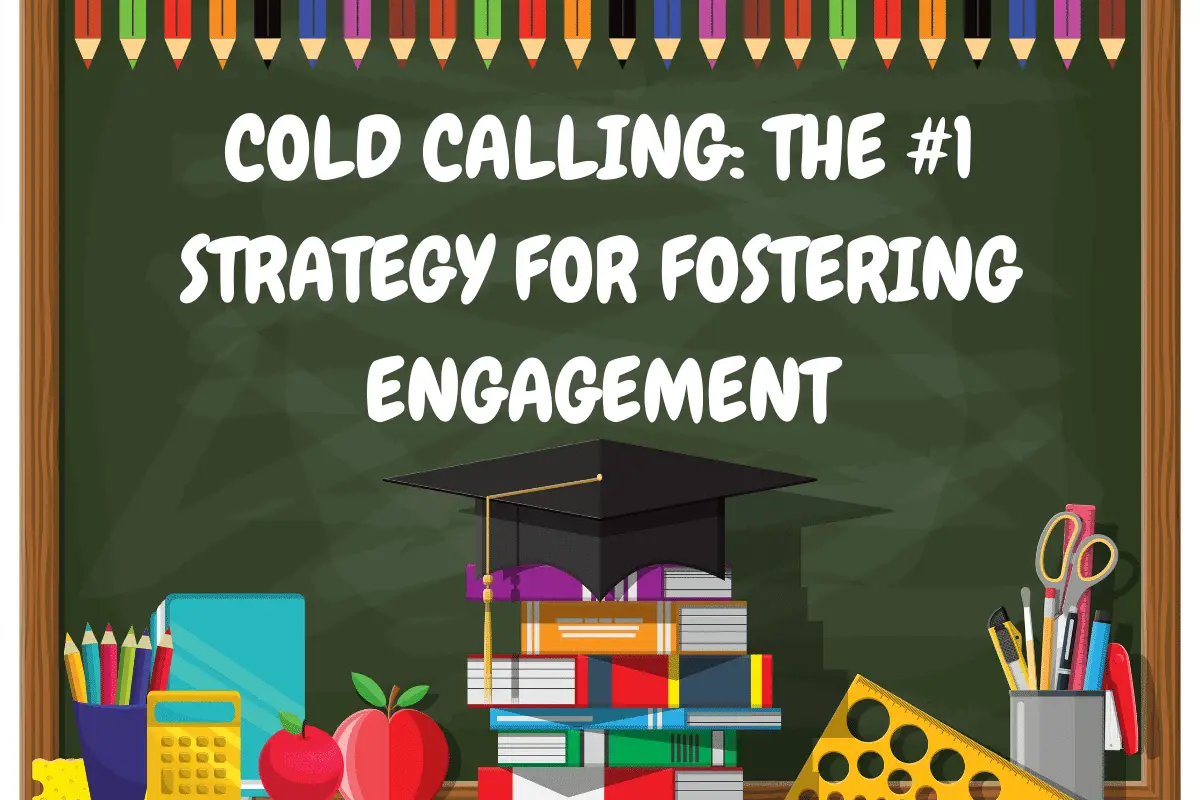
About The Author
I'm Dan Higgins, one of the faces behind The Teaching Couple. With 15 years in the education sector and a decade as a teacher, I've witnessed the highs and lows of school life. Over the years, my passion for supporting fellow teachers and making school more bearable has grown. The Teaching Couple is my platform to share strategies, tips, and insights from my journey. Together, we can shape a better school experience for all.

Join our email list to receive the latest updates.
Add your form here
- Essay Samples
- College Essay
- Writing Tools
- Writing guide

↑ Return to College Essay
Education Should Be Free for Everyone
In my argumentative essay, I discuss the ethical side of having a free education system. I discuss the positive sides and the negative sides of free education, and I focus mostly on having free higher education since we already have free education up to High School graduation levels. I conclude with a discussion about the actions of colleges and Universities and how they would inevitably make the ethical discussion mute from a student’s perceptive since the burden of ethics would fall upon higher education institutions in a world where they are given plenty of incentive to act immorally.
From an ethical perspective, it seems unfair that people who have less money are going to miss more opportunities. Ethically, opportunities should be open for all people. Though it may be true that the availability of an opportunity shouldn’t guarantee that a person receives that opportunity, the opportunity shouldn’t be ruled out. For example, all people should be able to become qualified to work in air traffic control, and even though a blind person is hardly guaranteed such a job position, the opportunity shouldn’t be ruled out as a default. Free education, especially free higher education, may open up a series of opportunities that some people would otherwise be unable to enjoy, and even if those opportunities are not guaranteed, they shouldn’t be ruled out by default, which is what happens when some people cannot use higher education for financial reasons. (Flood, 2014)
Some people are going to use free education as a way of getting out of work and as a way of doing nothing with their lives. Students up to the final year in High School are unable to get full-time jobs and live independently on their wages, which is why their education should be free. However, when a person is able to get a full-time job and live independently, he or she may get out of working by living on the education system. Even if the qualifications are free and not the living expenses, a person may still claim a slew of benefits and receive no incentive to ever get a job because he or she remains in the education system for years and years. (Gritz, 2010)
If all forms of education are free for students, then it becomes very easy for a person to waste his or her life on meaningless education. The decision to get into thousands upon thousands of dollars of debt in order to pursue a career should be agonizing and very difficult so as to make the student think long and hard about the decision. If all education is free, then less thought is required, and students may waste years of their life studying for qualifications that they do not need or even want. (Kamenetz, 2016)
If a student is genuinely looking for higher education and is not looking for a reason to do nothing and mess around for years by exploiting other people’s tax money through free education, then such a person may enjoy a longer education process. For example, a student taking a series of law qualifications is going to need five to seven years of education, which is also very expensive. If the cost of the qualification were removed, such a person may be able to take up jobs on an intermittent basis, stretch out his or her qualification duration, and take longer to gain said qualifications in a more comfortable manner. Instead of having to spend years as a low-income student while building debt, such a student may spend longer on a qualification and work while studying so that he or she may enjoy a more comfortable education experience. Plus, all of this would occur who the pressure of accumulating student debt. (The Leadership Institute, 2018)
Despite the ethical upsides and downsides that come with free education for students, it is sadly the Universities and colleges that will spoil it. These days, student loans are very easy to get, and this has resulted in colleges and Universities putting their prices up to almost scandalous levels, and it has resulted in colleges and Universities creating courses that add no real value for people wishing to join the workforce. If colleges and Universities were being fully funded by tax dollars, they would encourage students to join with a whole host of silly and frivolous programs because the quality of education would no longer matter or apply. (Fox, 2006).
Bibliography
Flood, Alison. “US students request ‘trigger warnings’ on literature.” The Guardian, Guardian News and Media, 19 May 2014, www.theguardian.com/books/2014/may/19/us-students-request-trigger-warnings-in-literature.
Fox News, http://www.foxnews.com/story/2006/09/01/why-does-college-cost-so-much-and-is-it-worth-it.html 2006
Gritz, Jennie Rothenberg. “What’s Wrong with the American University System.” The Atlantic, Atlantic Media Company, 28 July 2010, www.theatlantic.com/entertainment/archive/2010/07/whats-wrong-with-the-american-university-system/60458/.
Kamenetz, Anya. “How College Aid Is Like A Bad Coupon.” NPR, NPR, 17 Sept. 2016, www.npr.org/sections/ed/2016/09/17/492973995/how-college-aid-is-like-a-bad-coupon.
The Leadership Institute. “Why are colleges so liberal?” Leadership Institute, www.leadershipinstitute.org/crazycolleges/. 2018

Follow Us on Social Media
Get more free essays

Send via email
Most useful resources for students:.
- Free Essays Download
- Writing Tools List
- Proofreading Services
- Universities Rating
Contributors Bio

Find more useful services for students
Free plagiarism check, professional editing, online tutoring, free grammar check.
- Entertainment
- Environment
- Information Science and Technology
- Social Issues
Home Essay Samples Education College Tuition
Why College Should Be Free: Analysis of Arguments and Counterarguments
Table of contents, the access to education argument, the economic benefits argument, the counterarguments, the societal investment argument, the conclusion.
*minimum deadline
Cite this Essay
To export a reference to this article please select a referencing style below

- Education Goals
- Physical Education
- Environmental Education
- Special Education
- Distance Education
- High School
Related Essays
Need writing help?
You can always rely on us no matter what type of paper you need
*No hidden charges
100% Unique Essays
Absolutely Confidential
Money Back Guarantee
By clicking “Send Essay”, you agree to our Terms of service and Privacy statement. We will occasionally send you account related emails
You can also get a UNIQUE essay on this or any other topic
Thank you! We’ll contact you as soon as possible.
Home — Essay Samples — Education — College Tuition — Why Should College Be Free: Overview of The Benefits
Why Should College Be Free: Overview of The Benefits
- Categories: College College Tuition
About this sample

Words: 1583 |
Updated: 23 January, 2024
Words: 1583 | Pages: 3 | 8 min read
Table of contents
Introduction, why college should be free, works cited.
- BBC. (2019, December 20). Greta Thunberg: Climate Crisis Activist Gets Comic Book Treatment. Retrieved from https://www.bbc.com/news/world-europe-50861907
- CNN. (2019, September 23). Greta Thunberg: 5 Fast Facts You Need to Know.
- Greta Thunberg’s official website. (n.d.). Retrieved from https://www.gretathunberg.org/
- Svenska Dagbladet. (2018, August 20). Greta Thunberg: “Skolstrejken för klimatet kan pågå i åratal” [Greta Thunberg: “The school strike for climate can go on for years”]. Retrieved from https://www.svd.se/greta-thunberg-skolstrejken-for-klimatet-kan-paga-i-aratal
- The Guardian. (2019, March 11). Greta Thunberg: The Fifteen-Year-Old Climate Activist Who Is Leading a Global Movement.

Cite this Essay
To export a reference to this article please select a referencing style below:
Let us write you an essay from scratch
- 450+ experts on 30 subjects ready to help
- Custom essay delivered in as few as 3 hours
Get high-quality help

Prof Ernest (PhD)
Verified writer
- Expert in: Education

+ 120 experts online
By clicking “Check Writers’ Offers”, you agree to our terms of service and privacy policy . We’ll occasionally send you promo and account related email
No need to pay just yet!
Related Essays
5 pages / 2353 words
3 pages / 1391 words
2 pages / 819 words
2 pages / 919 words
Remember! This is just a sample.
You can get your custom paper by one of our expert writers.
121 writers online
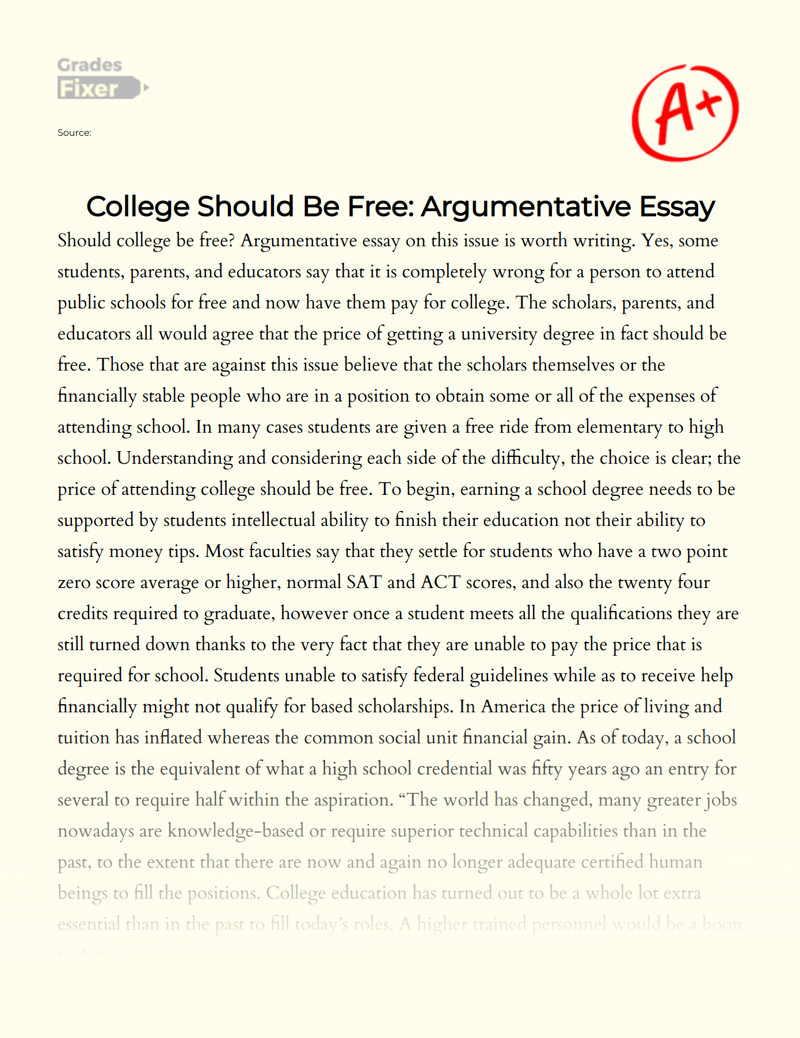
Still can’t find what you need?
Browse our vast selection of original essay samples, each expertly formatted and styled
Related Essays on College Tuition
The first problem is time management: the university is academically complex. For many, school courses require more effort than school efforts. Unlike most middle schools, colleges usually have two years in prison for one year. [...]
Recently, politicians all across the United States have debated over the topic of whether college should be free or not. Although it sounds like an incredible idea, it definitely has its flaws. There are a variety of issues [...]
There are several ways on how students can pay their college funds, those ways are discussed below: Students should apply as many scholarships and grants as possible. The money paid by the scholarships go [...]
Anyone who has ever attended college or thought about attending college has noticed that participating in any sort of higher education is costly. Many families are able to put their kids through school with the help of student [...]
Harboe, T., & Müllen, H. (2007). Time management for college students. The Cambridge handbook of personal relationships, 539-551.Maslow, A. H. (1943). A theory of human motivation. Psychological Review, 50(4), 370-396.Thoron, A. [...]
In recent discussions of free college education, a controversial issue has been whether community colleges should be tuition free to all, no matter then economical background. On the one hand, some argue that it is good idea and [...]
Related Topics
By clicking “Send”, you agree to our Terms of service and Privacy statement . We will occasionally send you account related emails.
Where do you want us to send this sample?
By clicking “Continue”, you agree to our terms of service and privacy policy.
Be careful. This essay is not unique
This essay was donated by a student and is likely to have been used and submitted before
Download this Sample
Free samples may contain mistakes and not unique parts
Sorry, we could not paraphrase this essay. Our professional writers can rewrite it and get you a unique paper.
Please check your inbox.
We can write you a custom essay that will follow your exact instructions and meet the deadlines. Let's fix your grades together!
Get Your Personalized Essay in 3 Hours or Less!
We use cookies to personalyze your web-site experience. By continuing we’ll assume you board with our cookie policy .
- Instructions Followed To The Letter
- Deadlines Met At Every Stage
- Unique And Plagiarism Free
- IELTS Scores
- Life Skills Test
- Find a Test Centre
- Alternatives to IELTS
- All Lessons
- General Training
- IELTS Tests
- Academic Word List
- Topic Vocabulary
- Collocation
- Phrasal Verbs
- Writing eBooks
- Reading eBook
- All eBooks & Courses
- Sample Essays
- University Essay
IELTS Free University Education Essay
The issue of free university education is an essay topic that comes up in the IELTS test. This essay therefore provides you with some of the key arguments about this topic.
The essay is an agree / disagree essay , which means you are given one opinion and then asked if you agree with it or not.
So remember to make it clear in your essay which side you are on.
University education should be free to everyone, regardless of income.
To what extent do you agree or disagree?
Choosing a Side

Of course you don't have to firmly come down on one side - you could partly agree if there are some aspects of the arguments you agree with but some parts you disagree with.
In this essay, the writer believes free university education is the best policy, so s/he agrees with the opinion. This is made clear in the conclusion (though you can put your opinion in the introduction as well if you wish).
The writer presents both sides of the argument . This is a good idea as you may find it more difficult to come up with a lot of ideas for one side of an argument. It also shows you are able to see both sides of the argument - a good academic skill.
Free University Education Essay
You should spend about 40 minutes on this task.
Write about the following topic:
Give reasons for your answer and include any relevant examples from your own experience or knowledge.
Write at least 250 words.
Model Answer:
Over recent years, more and more people have been attending university and arguments have persisted as to whether students should pay for this privilege not. Although there are convincing arguments on both sides, I strongly believe that it should be free.
One argument put forward in favour of charging students is that education is becoming more expensive to fund as universities grow in size. Consequently, making students pay may maintain standards and ensure the quality of the teaching. In addition, it is argued that most students benefit from university in terms of higher paid jobs, so it is fair that they pay for at least some of the cost, especially given that the majority of students attending university are from the middle classes. Last but not least, in many countries, there is a shortage of people to do manual jobs such as plumbing and carpentry, so making university more expensive may encourage people to take up these jobs.
However, there are a number of arguments in favour of making university education free for all. Firstly, it will encourage more people to attend and this will benefit society. This is because it will lead to a more productive and educated workforce. Research has generally shown that those countries that have a better educated population via university have higher levels of innovation and productivity. In addition, there is the issue of equality of opportunity. If all students are required to pay, those on a low income may be dissuaded from attending, thus making it unfair. The reason for this is that they will likely not be able to secure financial support from their family so they will be concerned about the debts they will incur in the future.
In conclusion, I am of opinion that all education should remain equally available to all regardless of income. This is not only fair, but will also ensure that countries can prosper and develop into the future with a well-educated workforce.
<<< Back
Next >>>
More Agree / Disagree Essays:

Return of Historical Objects and Artefacts Essay
This essay discusses the topic of returning historical objects and artefacts to their country of origin. It's an agree/disagree type IELTS question.
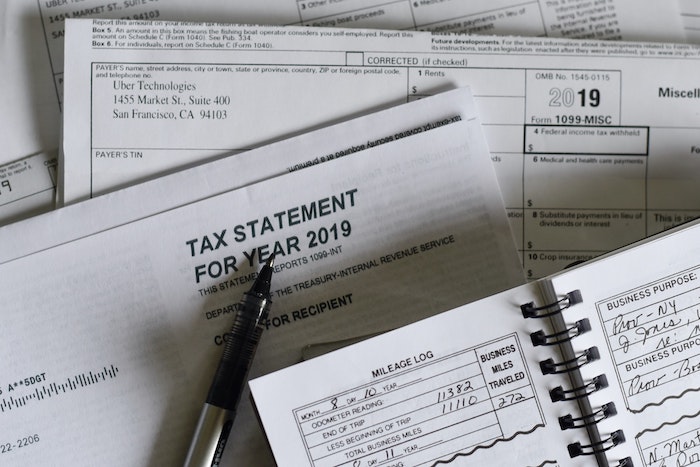
Paying Taxes Essay: Should people keep all the money they earn?
Paying Taxes Essay: Read model essays to help you improve your IELTS Writing Score for Task 2. In this essay you have to decide whether you agree or disagree with the opinion that everyone should be able to keep their money rather than paying money to the government.

Essay for IELTS: Are some advertising methods unethical?
This is an agree / disagree type question. Your options are: 1. Agree 100% 2. Disagree 100% 3. Partly agree. In the answer below, the writer agrees 100% with the opinion. There is an analysis of the answer.

Technology Development Essay: Are earlier developments the best?
This technology development essay shows you a complex IELTS essay question that is easily misunderstood. There are tips on how to approach IELTS essay questions

Scientific Research Essay: Who should be responsible for its funding?
Scientific research essay model answer for Task 2 of the test. For this essay, you need to discuss whether the funding and controlling of scientific research should be the responsibility of the government or private organizations.

IELTS Internet Essay: Is the internet damaging social interaction?
Internet Essay for IELTS on the topic of the Internet and social interaction. Included is a model answer. The IELTS test usually focuses on topical issues. You have to discuss if you think that the Internet is damaging social interaction.

IELTS Sample Essay: Is alternative medicine ineffective & dangerous?
IELTS sample essay about alternative and conventional medicine - this shows you how to present a well-balanced argument. When you are asked whether you agree (or disagree), you can look at both sides of the argument if you want.

Airline Tax Essay: Would taxing air travel reduce pollution?
Airline Tax Essay for IELTS. Practice an agree and disagree essay on the topic of taxing airlines to reduce low-cost air traffic. You are asked to decide if you agree or disagree with taxing airlines in order to reduce the problems caused.

Truthfulness in Relationships Essay: How important is it?
This truthfulness in relationships essay for IELTS is an agree / disagree type essay. You need to decide if it's the most important factor.

Dying Languages Essay: Is a world with fewer languages a good thing?
Dying languages essays have appeared in IELTS on several occasions, an issue related to the spread of globalisation. Check out a sample question and model answer.

IELTS Vegetarianism Essay: Should we all be vegetarian to be healthy?
Vegetarianism Essay for IELTS: In this vegetarianism essay, the candidate disagrees with the statement, and is thus arguing that everyone does not need to be a vegetarian.

Extinction of Animals Essay: Should we prevent this from happening?
In this extinction of animals essay for IELTS you have to decide whether you think humans should do what they can to prevent the extinction of animal species.

Employing Older People Essay: Is the modern workplace suitable?
Employing Older People Essay. Examine model essays for IELTS Task 2 to improve your score. This essay tackles the issue of whether it it better for employers to hire younger staff rather than those who are older.

Internet vs Newspaper Essay: Which will be the best source of news?
A recent topic to write about in the IELTS exam was an Internet vs Newspaper Essay. The question was: Although more and more people read news on the internet, newspapers will remain the most important source of news. To what extent do you agree or disagree?

Multinational Organisations and Culture Essay
Multinational Organisations and Culture Essay: Improve you score for IELTS Essay writing by studying model essays. This Essay is about the extent to which working for a multinational organisation help you to understand other cultures.

Role of Schools Essay: How should schools help children develop?
This role of schools essay for IELTS is an agree disagree type essay where you have to discuss how schools should help children to develop.

Ban Smoking in Public Places Essay: Should the government ban it?
Ban smoking in public places essay: The sample answer shows you how you can present the opposing argument first, that is not your opinion, and then present your opinion in the following paragraph.

Sample IELTS Writing: Is spending on the Arts a waste of money?
Sample IELTS Writing: A common topic in IELTS is whether you think it is a good idea for government money to be spent on the arts. i.e. the visual arts, literary and the performing arts, or whether it should be spent elsewhere, usually on other public services.

Examinations Essay: Formal Examinations or Continual Assessment?
Examinations Essay: This IELTS model essay deals with the issue of whether it is better to have formal examinations to assess student’s performance or continual assessment during term time such as course work and projects.

Human Cloning Essay: Should we be scared of cloning humans?
Human cloning essay - this is on the topic of cloning humans to use their body parts. You are asked if you agree with human cloning to use their body parts, and what reservations (concerns) you have.
Any comments or questions about this page or about IELTS? Post them here. Your email will not be published or shared.
Band 7+ eBooks
"I think these eBooks are FANTASTIC!!! I know that's not academic language, but it's the truth!"
Linda, from Italy, Scored Band 7.5

Bargain eBook Deal! 30% Discount

All 4 Writing eBooks for just $25.86 Find out more >>
IELTS Modules:
Other resources:.
- Band Score Calculator
- Writing Feedback
- Speaking Feedback
- Teacher Resources
- Free Downloads
- Recent Essay Exam Questions
- Books for IELTS Prep
- Useful Links

Recent Articles
Improve Coherence and Cohesion in IELTS Writing
Oct 27, 24 07:24 AM
Lesson on Writing IELTS Line Graphs
Oct 15, 24 02:26 AM
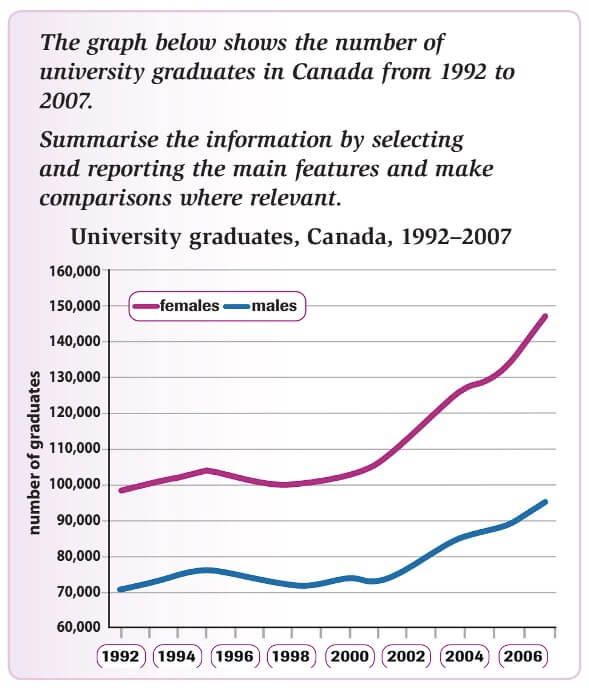
Time Management Tips for IELTS
Oct 06, 24 12:59 PM

Important pages
IELTS Writing IELTS Speaking IELTS Listening IELTS Reading All Lessons Vocabulary Academic Task 1 Academic Task 2 Practice Tests
Connect with us
Before you go...
30% discount - just $25.86 for all 4 writing ebooks.

Copyright © 2022- IELTSbuddy All Rights Reserved
IELTS is a registered trademark of University of Cambridge, the British Council, and IDP Education Australia. This site and its owners are not affiliated, approved or endorsed by the University of Cambridge ESOL, the British Council, and IDP Education Australia.

Education Should Be Free Essay

Table of Contents
Education Should Be Free Essay: Education is the key to personal growth and societal progress. It empowers individuals with knowledge, critical thinking skills, and opportunities, enabling them to fulfill their potential and contribute positively to their communities. Education is the foundation upon which a brighter and more equitable future is built. However, the cost of education can often be a significant barrier to accessing knowledge and opportunities.
Fill Out the Form for Expert Academic Guidance!
Please indicate your interest Live Classes Books Test Series Self Learning
Verify OTP Code (required)
I agree to the terms and conditions and privacy policy .
Fill complete details
Target Exam ---
Free education is essential as it breaks down financial barriers, ensuring that everyone has an equal opportunity to acquire knowledge and skills. It empowers individuals, promotes social equality, and contributes to a more educated and prosperous society, ultimately fostering progress and innovation. In this article, we’ll explore the idea that education should be free and provide sample essays of varying lengths to support this argument.
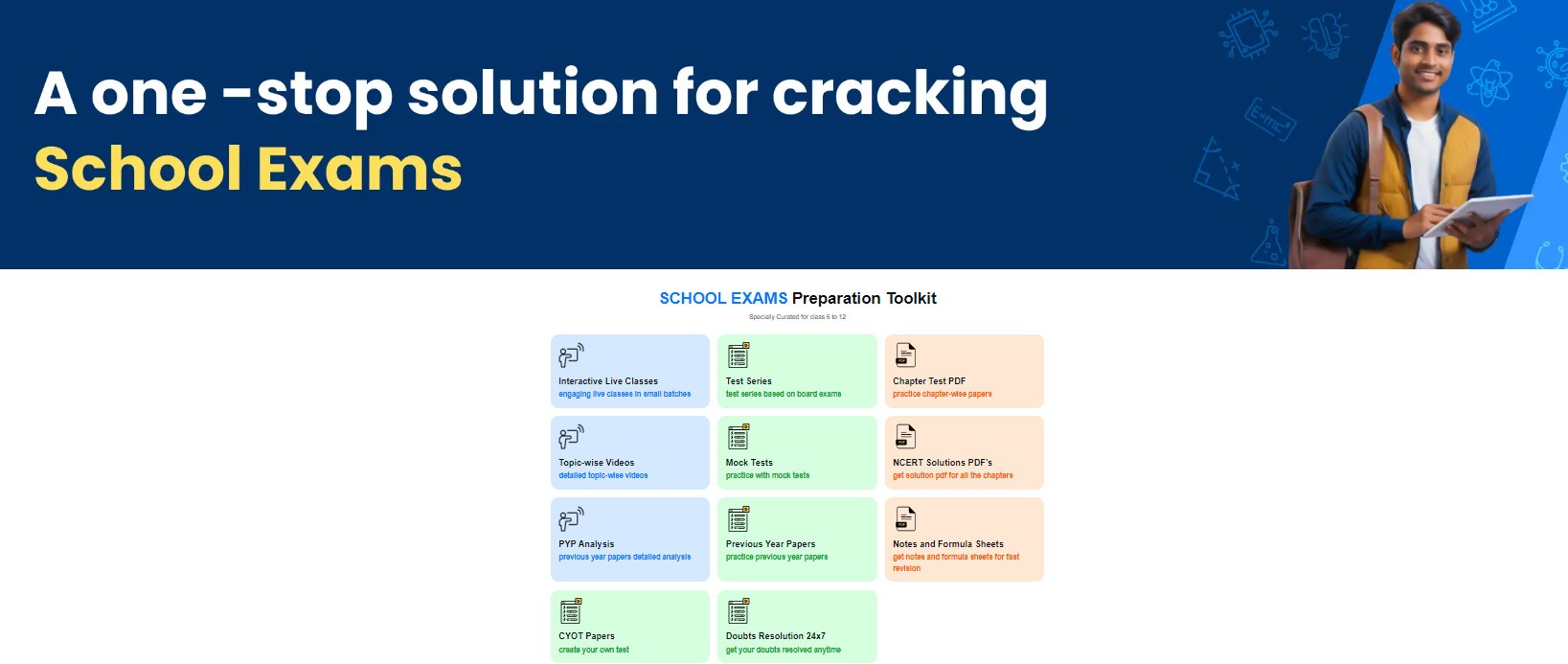
Education Should Be Free Essay 1: 150 Words
The concept of free education is rooted in the belief that access to knowledge should not be limited by one’s ability to pay. Education is not just a personal benefit but a societal one, as it leads to a more informed and empowered citizenry. When education is free, it breaks down economic barriers and opens doors to countless opportunities. One of the key advantages of free education is the reduction of inequality. It levels the playing field, enabling individuals from diverse backgrounds to access the same quality of education. This fosters social mobility, where talent and effort are the primary determinants of success.
Furthermore, free education has economic benefits. A well-educated workforce is more likely to contribute to a nation’s economic growth. It leads to a higher-skilled labor market, innovation, and increased productivity, all of which are vital for a nation’s competitiveness on the global stage.
In conclusion, the idea of free education is not just an idealistic notion but a practical and necessary step for societal progress. It promotes equality, empowers individuals, and strengthens economies, making it a worthwhile investment for any nation.
Essay on Education Should Be Free 2: 250 Words
Education is often referred to as the great equalizer, a means by which individuals can overcome socio-economic disparities and achieve their full potential. However, the rising costs of education have created barriers for many, limiting their access to this invaluable resource. This essay argues that education should be free, as it benefits not only individuals but society as a whole.
First and foremost, free education promotes equality and social mobility. It ensures that every person, regardless of their financial background, has the opportunity to pursue higher education. This levels the playing field and allows individuals to advance based on their merit and hard work rather than their financial resources.
Moreover, free education has economic advantages. A well-educated workforce is essential for a nation’s economic growth and competitiveness. It leads to higher productivity, innovation, and a more skilled labor market. When education is accessible to all, it contributes to a stronger and more prosperous economy.
Furthermore, free education benefits society by fostering an informed and engaged citizenry. Educated individuals are more likely to participate in civic activities, make informed decisions, and contribute positively to their communities. They are also better equipped to address societal challenges and drive innovation.
Critics may argue that free education is costly for governments, but the long-term benefits far outweigh the initial investment. Studies have shown that the economic returns from an educated workforce more than compensate for the costs of providing free education.
In conclusion, education should be free because it is a fundamental right and a public good. It promotes equality, social mobility, economic growth, and civic engagement. By making education accessible to all, we invest in a brighter and more prosperous future for individuals and society as a whole.

Education Should Be Free Essay 3 – 400 Words
Education is often regarded as the cornerstone of personal and societal development. It equips individuals with knowledge, skills, and opportunities that can transform lives and contribute to the betterment of society as a whole. However, the cost of education can be a formidable barrier for many, limiting access and perpetuating inequalities. In this essay, we will argue why education should be free, focusing on the benefits it offers to individuals and society.
First and foremost, free education promotes equality of opportunity. It ensures that individuals from all backgrounds, regardless of their economic circumstances, have the same access to quality education. When education is not contingent on one’s ability to pay, it levels the playing field, allowing talent and effort to be the primary determinants of success. This results in a more equitable society where everyone has a fair chance to achieve their aspirations.
Furthermore, free education is an investment in human capital and economic growth. A well-educated workforce is essential for a nation’s prosperity. It leads to increased productivity, innovation, and competitiveness on the global stage. When individuals are educated, they are more likely to contribute positively to the workforce, driving economic development and reducing dependency on social welfare programs.
Additionally, free education benefits society by fostering an informed and engaged citizenry. Educated individuals are more likely to participate in civic activities, make informed decisions, and contribute to their communities. They are equipped to address societal challenges, advocate for positive change, and drive innovation in various fields.
Critics may argue that providing free education is financially burdensome for governments. However, studies have shown that the long-term economic returns from an educated populace far outweigh the initial costs. Moreover, free education can be funded through various means, such as progressive taxation or reallocating budget priorities, ensuring that it is a sustainable and worthwhile investment.
In conclusion, education should be free because it is a fundamental right and a public good. It promotes equality, social mobility, economic growth, and civic engagement. By making education accessible to all, we empower individuals to reach their full potential and contribute to a more equitable and prosperous society. Free education is not just an idealistic notion but a practical necessity for building a brighter and more inclusive future for individuals and society as a whole.
Education Should Be Free Essay 4: 500 Words
Education is the key to personal and societal advancement. It has the power to transform lives, break the cycle of poverty, and pave the way for a more equitable and prosperous society. However, the cost of education has become a significant barrier for many, limiting access to knowledge and opportunities. In this essay, we will make a compelling case for why education should be free, discussing the benefits it brings to individuals and society at large.
Equality of Opportunity
One of the most compelling arguments in favor of free education is its role in promoting equality of opportunity. Education should not be a privilege reserved for those who can afford it; it should be a universal right. When education is free, it ensures that individuals from all socio-economic backgrounds have the same access to quality learning. This levels the playing field, allowing talent and determination to be the primary factors in achieving success. It ensures that no one is left behind simply because of their financial circumstances.
Economic Prosperity
Free education is not just a social justice issue; it is also an economic imperative. A well-educated workforce is essential for a nation’s economic growth and competitiveness in the global arena. When individuals have access to higher education without the burden of crushing student debt, they are more likely to pursue careers that align with their passions and skills. This leads to increased productivity, innovation, and a more dynamic labor market.
Furthermore, educated individuals tend to earn higher incomes over their lifetimes, which, in turn, results in increased tax revenues for the government. This revenue can be reinvested in education and other critical public services, creating a positive feedback loop that benefits society as a whole.
Informed and Engaged Citizens
Education is not just about acquiring knowledge; it is also about fostering critical thinking and civic engagement. Educated individuals are more likely to participate in civic activities, vote in elections, and make informed decisions. They have the tools to analyze complex issues, advocate for positive change, and contribute meaningfully to their communities.
Education also plays a pivotal role in addressing societal challenges. It equips individuals with the skills and knowledge needed to tackle pressing issues such as climate change, healthcare disparities, and social inequality. By investing in education, we empower a new generation to be the problem solvers and change-makers of tomorrow.
Financial Feasibility
Critics often argue that providing free education is financially unsustainable. However, numerous studies have shown that the long-term economic benefits far outweigh the initial costs. Moreover, there are various ways to fund free education, such as implementing progressive taxation or reallocating budget priorities.
Additionally, countries that have already implemented free or heavily subsidized education models have seen positive outcomes. For example, in countries like Germany and Finland, where higher education is largely free, they have not only achieved high levels of educational attainment but also maintained robust economies.
In conclusion, education should be free because it is a fundamental human right and a powerful catalyst for individual and societal progress. Free education promotes equality of opportunity, fosters economic prosperity, and nurtures informed and engaged citizens. It is a wise investment that benefits not only individuals but also society as a whole.
By making education accessible to all, we empower individuals to reach their full potential and contribute positively to their communities. In a world where knowledge is an essential currency, free education is not just an idealistic aspiration; it is a practical necessity for building a brighter and more inclusive future for individuals and society as a whole.
Other Topics:
FAQs on Education Should Be Free Essay
Should education be free.
Yes, education should be free because it promotes equality of opportunity, fosters economic growth, and empowers individuals to contribute to society.
Can education be made free in India?
While achieving entirely free education in India may be challenging, there are ways to reduce the financial burden on students and make education more affordable through government subsidies, scholarships, and policy reforms.
Why is free education required in our society?
Free education is required in our society to ensure that knowledge and opportunities are accessible to all, regardless of their financial background. It reduces inequality, fosters economic development, and empowers individuals to become informed, engaged citizens who can address societal challenges and contribute positively to their communities.
Related content

Get access to free Mock Test and Master Class
Register to Get Free Mock Test and Study Material
Offer Ends in 5:00
Select your Course
Please select class.

Education should be free for everyone. Do you agree or disagree with this statement, and to what extent?
Unauthorized use and/or duplication of this material without express and written permission from this site’s author and/or owner is strictly prohibited. Excerpts and links may be used, provided that full and clear credit is given to Writing9 with appropriate and specific direction to the original content.
Include an introduction and conclusion
A conclusion is essential for IELTS writing task 2. It is more important than most people realise. You will be penalised for missing a conclusion in your IELTS essay.
The easiest paragraph to write in an essay is the conclusion paragraph. This is because the paragraph mostly contains information that has already been presented in the essay – it is just the repetition of some information written in the introduction paragraph and supporting paragraphs.
The conclusion paragraph only has 3 sentences:
- Restatement of thesis
- Prediction or recommendation
To summarize, a robotic teacher does not have the necessary disciple to properly give instructions to students and actually works to retard the ability of a student to comprehend new lessons. Therefore, it is clear that the idea of running a classroom completely by a machine cannot be supported. After thorough analysis on this subject, it is predicted that the adverse effects of the debate over technology-driven teaching will always be greater than the positive effects, and because of this, classroom teachers will never be substituted for technology.
Start your conclusion with a linking phrase. Here are some examples:
- In conclusion
- To conclude
- To summarize
- In a nutshell
Discover more tips in The Ultimate Guide to Get a Target Band Score of 7+ » — a book that's free for 🚀 Premium users.
- lifelong education
- continual learning
- changing technologies
- societal norms
- cognitive function
- cognitive decline
- personal development
- self-improvement
- formal education
- contentment
- Check your IELTS essay »
- Find essays with the same topic
- View collections of IELTS Writing Samples
- Show IELTS Writing Task 2 Topics
it is working in a team is better than working alone.
The plans below show a public park when it first opened in 1920 and the same park today. summarise the information by selecting and reporting the main features, and make comparisons where relevant., some people believe that the best way to increase the road safety is to increase the minimum legal age for driving cars. to what extent do you agree or disagree, nowadays,a growing number of people with health problems are trying alternative medicines and treatments instead of visiting their usual doctor. do you think this is a positive or a negetive development, you are currently taking a course at a university but you will need to have a week off during this course. write a letter to the university of dean. in the letter: •give details of your course •explain why you need a week off •say what you want the dean to do..
Should Higher Education be Free?
How it works
College education is very important for many people. However, a lot of us cannot afford it because it is expensive. Providing free college education would be easier for students because they would not have to worry about the cost of classes or books, allowing them to focus more on their studies. Qualified students should be given a free college education because of its exorbitant cost, which, in turn, will help them find a career that they enjoy. Maria, a student who just graduated from high school with good SAT scores and grades, unfortunately cannot go to college because she does not have the money to afford it.
She hails from an immigrant family that has a very low income, making it very hard for her to pursue college education because acquiring a loan would put her in debt. Many students, like Maria, are unable to receive the education they yearn for.
The average debt of borrowers pursuing a master’s degree in a non-profit college increased by 30 percent between the years 2001 and 2015 (Erik Maslow). “The rise of the cost of loan debt has reached a record 1.5 trillion, more than twice what consumers owe on credit cards,” (Erik Maslow). The average debt per person in the United States is about 30,000 dollars (Debt Association). People spend a lot of money on college education, which as a result, can land us in lifelong debt. “If people did not have this amount of student loan debt, they could afford to buy houses, consumer items, and contribute more to the economy” (Alan Greenblatt).
Many high school students with good grades come from low-income households, and they are often not the ones who go to good schools. Even though these students were successful in high school, we often see that they do not have the opportunity to attend college. We are wasting the intelligence of many people by not supporting them with their college education.
In addition to worrying less about costs, students would be able to focus more on their college education with free tuition. This would result in more students graduating on time, ready to take up quality jobs, and improve our society. Student aid has not been significantly helpful in recent years. For example, today, a federal Pell grant only covers 30 percent of the average cost of attending a four-year college or university (Mark Huelsman).
In 1973, it used to cover 75 percent of the cost (Alan Greenblatt). Student aid has changed immensely, and not everyone is eligible to receive it. There’s a lot of injustice with student aid because many people who really need it are not considered “qualified” (Erich Gonzales).
Over the past half-century, a college degree has been the primary ticket to a better future. Workers with only a high school education have fallen behind and are more likely than college students to be unemployed and live in poverty (Mark Huelsman). In 2016, the average salary for a college graduate was $44,000 compared to a high school graduate who earned only $25,000 (Marc Joseph). Not having a college degree can lead to life difficulties like affording a place to live or owning a car (“Public University Values”).
There are different ways where we can make college education free. For example, students who volunteer with Americorps could have a free college education. Bill Clinton also created various types of programs to allow the federal government to provide education where they can learn different types of jobs. The former president, Bill Clinton, also wanted to create ways where low-income students would have a free college education. He said, “If there were more college graduates, the country would improve immensely, as well as the economy.” (Sue Kirchhoff)
A free college education could also make a significant impact in the United States. People with more college degrees would help the economy grow. Free college would benefit the country because there would be more jobs available, and there would be less poverty. (Emily Bohatch) More people will choose higher-paying jobs than the ones that offer minimum wage. The economy will grow faster and would contribute billions of dollars to the country. Free college would open opportunities to many students around the country. People would be more educated, and there would be less delinquency. Having a free college education would significantly impact the country.
People would have more freedom to contribute with more talents and ideas. They will pursue their dreams. This will make the lives of many people much happier. A college-educated person could make better decisions in society, which can make solving problems easier.
Many bright high school students do not apply to colleges because they cannot afford it. However, having free college education would offer them more opportunities and they can succeed in their life. Not having free college can result in students graduating with a high amount of loan debt, which will reduce the chances of owning a house, getting married, or accumulating good wealth. This would make the person struggle economically.
Providing free education can bring several benefits to the country. It would prepare people for the workforce and society. It will offer more opportunities to learn new things. It will also help the country to have less public assistance and improve the economy.
According to Mark Huelsman, the Director for Policy and Research, providing a major education investment could be one of the best inventions nationwide. Free college is not a new idea. It existed in several states, and debt-free college is certainly not new; it wasn’t until the mid-1990s that most people had to borrow to finance a four-year degree. (Mark Huelsman) Huelsman thinks that the movement towards free college education is a necessary corrective after decades of unfulfilled promises. Now, the price to attend college continues to rise, even as income for most workers remains flat. Most students can no longer work their way through school without also taking on loans, and student loan delinquencies and defaults remain unconscionably high despite having generous loan repayment options. (Mark Huelsman)
On the other hand, policy analyst Mary Amselem argues that we should not implement free college education, asserting that it would be unaffordable. She anticipates significant negative changes in government due to the burden of college tuition expenses. Amselem contends that the required funding would burden taxpayers and stir widespread discontent. She maintains that the federal government has assumed control of college education financing, distributing a staggering 90 percent of student loans (Amselem). She avers that student loans significantly aid those attending college, providing substantial support in paying tuition (Amselem).
Loans are not always the best method of financial assistance. Often, they are a last resort, as they can lead to substantial debt. Many people take out loans, which can sometimes do more harm than good. After graduation, they are left with massive debts that may outweigh their income, making it a struggle to cover basic necessities, let alone their loans. The burden of student loan debt can lead to long-term problems like difficulties in purchasing a house, buying a car, or starting a family. Take Manuel for example — a college graduate who, five years later, is still grappling with a mountain of student loan debt. This situation is causing him significant hardship, complicating his plans to purchase a house and start a family.
Post-graduation, many individuals hope for a bright future free from the anxieties brought on by burdensome debt. There is a very real risk that the stress of such debt could lead to severe mental health issues such as anxiety or depression, which in extreme cases could even precipitate suicide. Not everyone can bear the pressure of owing vast sums of money.
Free college education could solve many of these challenges.
College education is extremely important to many people. However, it is often financially out of reach due to the astronomical costs involved. Free education could cultivate a better-educated society, fostering improved decision-making and less poverty. Free college education could help us foster a more progressive nation that genuinely cares for its citizens. It carries the potential for widespread benefits. More individuals would qualify for higher paying jobs and grow into skilled professionals. This, in turn, could lead to a more judicious society.
Cite this page
Should higher education be free?. (2019, Oct 14). Retrieved from https://papersowl.com/examples/should-higher-education-be-free/
"Should higher education be free?." PapersOwl.com , 14 Oct 2019, https://papersowl.com/examples/should-higher-education-be-free/
PapersOwl.com. (2019). Should higher education be free? . [Online]. Available at: https://papersowl.com/examples/should-higher-education-be-free/ [Accessed: 29 Oct. 2024]
"Should higher education be free?." PapersOwl.com, Oct 14, 2019. Accessed October 29, 2024. https://papersowl.com/examples/should-higher-education-be-free/
"Should higher education be free?," PapersOwl.com , 14-Oct-2019. [Online]. Available: https://papersowl.com/examples/should-higher-education-be-free/. [Accessed: 29-Oct-2024]
PapersOwl.com. (2019). Should higher education be free? . [Online]. Available at: https://papersowl.com/examples/should-higher-education-be-free/ [Accessed: 29-Oct-2024]
Don't let plagiarism ruin your grade
Hire a writer to get a unique paper crafted to your needs.

Our writers will help you fix any mistakes and get an A+!
Please check your inbox.
You can order an original essay written according to your instructions.
Trusted by over 1 million students worldwide
1. Tell Us Your Requirements
2. Pick your perfect writer
3. Get Your Paper and Pay
Hi! I'm Amy, your personal assistant!
Don't know where to start? Give me your paper requirements and I connect you to an academic expert.
short deadlines
100% Plagiarism-Free
Certified writers

IMAGES
VIDEO
COMMENTS
Long Essay on Education Should be Free is usually given to classes 7, 8, 9, and 10. Education becomes crucial for anyone to survive their academic, social, and political career. Education worldwide requires a lot of money, but it should not be monopolized so that the entire globe can move at the same pace, solving problems like world poverty or ...
The Arguments Why Education Should Be Free for Everyone. Education is the lighting guide in our successful route. Education can be described as the process of gaining understanding, beliefs, values, abilities, and practices that teach us to be a real human being. Whatever we learned whether imposed or willingly comes under the domain of education.
100 Words Essay On Education Should Be Free. Quality education is important. In today's economy, it's more important than ever but the cost of a higher education can be prohibitive. That's why free education should be a priority for our country. It's an investment in our future, and it will pay dividends for decades to come.
In conclusion, while free education is an ideal worth striving for, it demands careful consideration of its economic implications and potential societal impacts. A balanced approach, considering both the benefits and challenges, is crucial for its successful implementation. 500 Words Essay on Education Should Be Free The Essence of Free Education
Georgetown University Center on Education and the Workforce. " The Dollars and Cents of Free College," see "Biden's Free College Plan Would Pay for Itself Within 10 Years.". ," see "Free-College Programs Have Different Effects on Race and Class Equity.". University of Pennsylvania Graduate School of Education.
Key Takeaways. Free higher education could serve as a critical driver of economic growth and innovation. It may contribute to social equality and cultural enrichment across communities. Implementation of tuition-free higher education requires careful consideration of economic and structural challenges.
Some people are going to use free education as a way of getting out of work and as a way of doing nothing with their lives. Students up to the final year in High School are unable to get full-time jobs and live independently on their wages, which is why their education should be free. However, when a person is able to get a full-time job and ...
Introduction. The issue of whether college education should be free has been a topic of debate for many years. While some argue that higher education should come at a cost to ensure its value and maintain high standards, others believe that free access to college education is a fundamental right that can contribute to a more equitable society. This essay aims to provide a persuasive argument ...
As the pursuit of a college degree becomes increasingly expensive, the question of whether college should be free has gained prominence in discussions about accessibility, equity, and the future of education. This essay explores the reasons why college education should be free and addresses counterarguments that challenge this proposal. The ...
Why College Should Be Free. To begin, earning a school degree needs to be supported by students intellectual ability to finish their education not their ability to satisfy money tips. Most faculties say that they settle for students who have a two point zero score average or higher, normal SAT and ACT scores, and also the twenty four credits ...
Education teaches skills of living; it teaches how to live, not just exist. It enables one to find work and earn livelihood. Education is the best way by which we can encourage the lower class children to fight against poverty, inequality and other social evils. Education should be made free for all people of the world to develop their nation ...
If education were free, this would increase the number of students who want education. This would also increase innovation in society. There are many reasons why education should be free. One reason is that it would increase the number of people who have access to education. This would, in turn, lead to more innovation in society.
This essay therefore provides you with some of the key arguments about this topic. The essay is an , which means you are given one opinion and then asked if you agree with it or not. So remember to make it clear in your essay which side you are on. University education should be free to everyone, regardless of income.
Graduates with a college education tend to earn higher wages, contribute more in taxes, and are less likely to rely on social welfare programs. Free college education can be seen as an investment that yields high returns for society as a whole. In the long term, the increased earning potential and productivity of graduates can stimulate ...
Education Should Be Free Essay 4: 500 Words. Education is the key to personal and societal advancement. It has the power to transform lives, break the cycle of poverty, and pave the way for a more equitable and prosperous society. However, the cost of education has become a significant barrier for many, limiting access to knowledge and ...
The task response is complete, covering the main aspects of the question about the benefits of free education. To get an excellent score in the IELTS Task 2 writing section, one of the easiest and most effective tips is structuring your writing in the most solid format. A great argument essay structure may be divided to four paragraphs, in ...
Education should be free because it would help lower the homeless population, dropout rates, and stop student debt after they graduate college. Many people drop out because they struggle to pay for their education. Erin Shankie wrote in her article, "At the forefront of reasons for college dropout is the cost—and not just the cost of ...
You should spend about 40 minutes on this task. Write at least 250 words. Give reasons for your answer and include any relevant examples from your knowledge or experience. # education # minutes. Education. is a valuable resource and it advances. society. If there are certain barriers to receiving. education.
Write at least 150 words. The maps illustrate the developments which took place in the harbour between 2000 and today. Some people believe that children of all ages should have extra responsibilities, for example, helping at home or at work. Others believe that outside of school children should be free to enjoy life.
This would make the person struggle economically. Providing free education can bring several benefits to the country. It would prepare people for the workforce and society. It will offer more opportunities to learn new things. It will also help the country to have less public assistance and improve the economy.